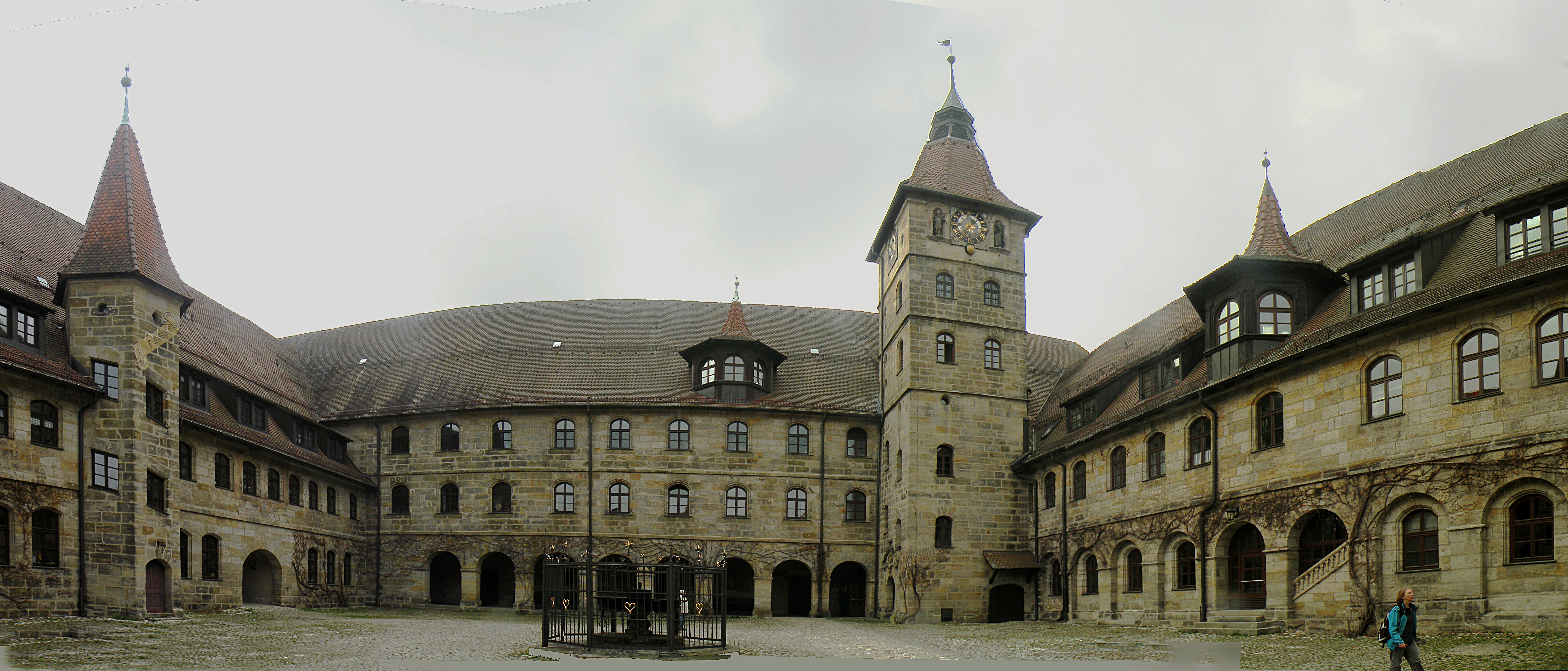University of Altdorf on:
[Wikipedia]
[Google]
[Amazon]
The University of Altdorf () was a
 *
*
university
A university () is an educational institution, institution of tertiary education and research which awards academic degrees in several Discipline (academia), academic disciplines. ''University'' is derived from the Latin phrase , which roughly ...
in Altdorf bei Nürnberg
Altdorf bei Nürnberg ( , ; ) is a town in south-eastern Germany. It is situated east of Nuremberg, in the district Nürnberger Land. Its name literally means “Altdorf near Nuremberg”, to distinguish it from other Altdorfs.
History
Altdorf ...
, a small town outside the Free Imperial City of Nuremberg
The Free Imperial City of Nuremberg () was a free imperial city – independent city-state – within the Holy Roman Empire. After Nuremberg gained piecemeal independence from the Burgraviate of Nuremberg in the High Middle Ages and considerable ...
. It was founded in 1578 and received university privileges in 1622 and was closed in 1809 by Maximilian I Joseph of Bavaria
Maximilian I Joseph (; 27 May 1756 – 13 October 1825) was Duke of Zweibrücken from 1795 to 1799, prince-elector of Bavaria (as Maximilian IV Joseph) from 1799 to 1806, then King of Bavaria (as Maximilian I Joseph) from 1806 to 1825. He was ...
.
History
In the period 1614–1618, Altdorf was briefly the centre ofSocinianism
Socinianism ( ) is a Nontrinitarian Christian belief system developed and co-founded during the Protestant Reformation by the Italian Renaissance humanists and theologians Lelio Sozzini and Fausto Sozzini, uncle and nephew, respectively.
...
in Germany. Encouraged by the connections of German Antitrinitarians
Nontrinitarianism is a form of Christianity that rejects the orthodox Christian theology of the Trinity—the belief that God in Christianity, God is three distinct Hypostasis (philosophy and religion), hypostases or persons who are coeternal, ...
to the Racovian Academy
The Racovian Academy (') was a Socinian school operated from 1602 to 1638 by the Polish Brethren in Raków, Kielce County, Raków, Sandomierz Voivodeship of Lesser Poland.
The communitarian Arianism, Arian settlement of Raków was founded in 1569 b ...
in Poland, German and Polish Socinians attempted to establish in Altdorf a similar Academy. Among the notable Socinian students was the 26-year-old Samuel Przypkowski. He was admitted as student on March 22, 1614, three weeks after Thomas Seget, but was expelled from Altdorf in 1616''The Polish Review'', Volume 11, 1966, p. 33. "Crypto-Socinianism" was widely suspected among the student body. In January 1617 the syndicus Jacob Weigel brought two students Joachim Peuschel and Johann Vogel back to Altdorf and the college made them give a public recantation. This recantation was answered by Valentin Schmalz, one of the German professors of the Academy in Poland.
Notable instructors include Hugues Doneau, Scipione Gentili, and Daniel Schwenter.
Notable students include later imperial field marshals Albrecht von Wallenstein
Albrecht Wenzel Eusebius von Wallenstein, Duke of Friedland (; 24 September 1583 – 25 February 1634), also von Waldstein (), was a Bohemian military leader and statesman who fought on the Catholic side during the Thirty Years' War (1618–16 ...
(1583–1634) and Gottfried Heinrich zu Pappenheim (1594–1632); Generalfeldwachtmeister Hans Ulrich von Schaffgotsch (1595–1635); the polymath Johann Schreck (1576–1630); the composers Wolfgang Carl Briegel (1626–1712) and Johann Pachelbel
Johann Pachelbel (also Bachelbel; baptised – buried 9 March 1706) was a German composer, organist, and teacher who brought the south German organ schools to their peak. He composed a large body of sacred and secularity, secular music, and ...
(1653–1706); and the theologian David Caspari (1648–1702).
The polymath
A polymath or polyhistor is an individual whose knowledge spans many different subjects, known to draw on complex bodies of knowledge to solve specific problems. Polymaths often prefer a specific context in which to explain their knowledge, ...
Gottfried Wilhelm Leibniz
Gottfried Wilhelm Leibniz (or Leibnitz; – 14 November 1716) was a German polymath active as a mathematician, philosopher, scientist and diplomat who is credited, alongside Sir Isaac Newton, with the creation of calculus in addition to ...
(1646–1716), perhaps most famous for co-discovering calculus
Calculus is the mathematics, mathematical study of continuous change, in the same way that geometry is the study of shape, and algebra is the study of generalizations of arithmetic operations.
Originally called infinitesimal calculus or "the ...
, received his Dr. jur. from the University of Altdorf in 1666. After the University of Leipzig
Leipzig University (), in Leipzig in Saxony, Germany, is one of the world's oldest universities and the second-oldest university (by consecutive years of existence) in Germany. The university was founded on 2 December 1409 by Frederick I, Electo ...
refused to grant him the degree, likely on account of his relative youth.
See also
 *
* List of early modern universities in Europe
The list of early modern universities in Europe comprises all University, universities that existed in the early modern age (1501–1800) in Europe. It also includes short-lived foundations and educational institutions whose university status is ...
Notes
References
* * Moran, Bruce T., The Universe of Philip Melanchthon: Criticism and Use of the Copernican Theory, Comitatus: A Journal of Medieval and Renaissance Studies, 4(1), 1973., pp. 1–23. Altdorf A Altdorf Altdorf 1809 disestablishments in the Confederation of the Rhine 19th-century disestablishments in Bavaria 1578 establishments in the Holy Roman Empire 16th-century establishments in Bavaria {{Bavaria-struct-stub